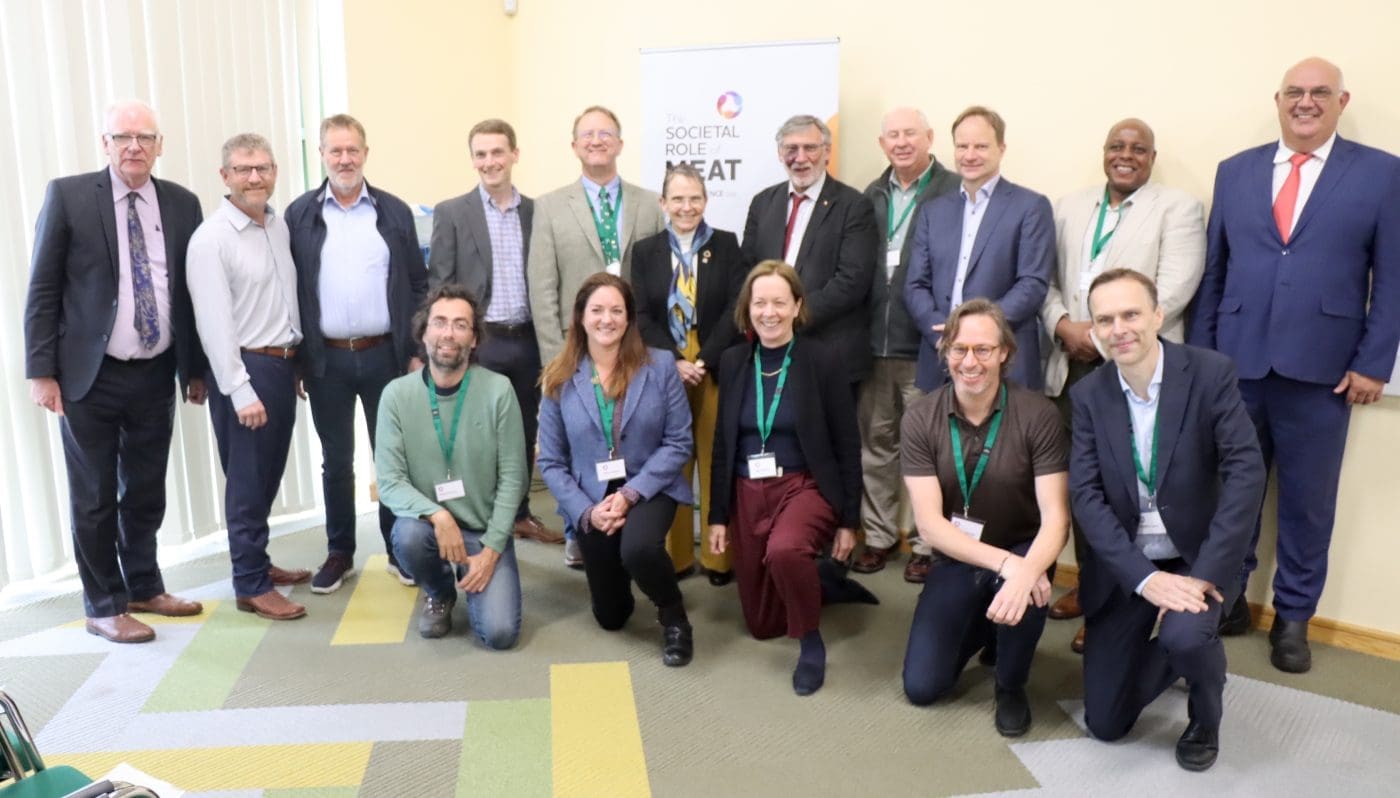
Presenters at the two-day summit on the societal role of meat in Dublin included Declan Troy, Jason Rowntree, Willhelm Windisch, Nick Smith, PeterBallerstedt, Shirley Tarawali, Paul Wood, Neil Mann, Peer Ederer, Max Makuvise, Theo de Jager, Pablo Manzano, Diana Rodgers, Alice Stanton, Bradley Johnson and Frederic Leroy.
AN INFLUENTIAL group of scientists behind a global movement recognising the essential role of meat and livestock will meet again in the United States this week to take the next step in the discussion.
With concerns about anti-meat narratives driven by ideology limiting the scope of science, a group of academics came together in Ireland in 2022 to sign the Dublin Declaration.
The declaration recognises the essential role of meat and livestock and warns they are “too precious to become the victim of simplification, reductionism or zealotry”.
Since then, more than 1200 scientists from across the world have signed the declaration accepting the societal role of meat and livestock. The scientists are all from recognised research institutions and have been hand-verified. More than 80 Australian scientists are on the list.
This week’s conference in Denver will aim to take the next step by ramping up communications and calling for a shift in the way Governments approach diets – moving the focus to “nourishment”.
Belgian food scientist and co-author of the Dublin Declaration Frederic Leroy said it was important for the content to be based on high quality science.
“Our goal has always been to have certain standards in place, the evidence needs to be of high quality,” he said.
While there has been some variation between countries, Dr Leroy the document has been well-received by scientists across the world.
“We have had a lot of coverage from Latin America and North America,” Dr Leroy said.
“Northern European scientists are a bit more reluctant to sign than the southern parts of Europe and I think that is because Southern European countries are more in tune with their food legacies. There is definitely pressure on Northern European scientists not to be too loud about livestock.”
Interestingly, Dr Leroy said it had been hard to pick up signatures in Africa – which already had a large acceptance of the role of meat and livestock.
“To them, it is very obvious that livestock needs to be part of the food system, so they just don’t understand what this is about,” he said.
Detractors taking aim at Dublin Declaration
While there has been plenty of support for the Dublin Declaration, it has also had its detractors – with several media reports and scientists taking aim at its links to industry. The criticisms have been ramped up again with the news of the Denver conference.
Many of the scientists coming out against the declaration are of the belief that red meat consumption needs to be reduced.
Dr Leroy said while some of the scientists who are on the declaration receive funding from the industry, the declaration was not initiated or funded by industry.
“We have received no funding from the meat industry at all, we have neither been instructed, steered or supported in any way by industries,” he said.
“It is really just a ‘bottom-up’ initiative coming from a few scientists.”
Dr Leroy said the evidence published by the Dublin Declaration has not been challenged.
“If you read the declaration, there isn’t anything that should be controversial,” he said.
“It is a very open declaration; it doesn’t say anything about the how big the herd should be or the amount of meat people should eat.
“The only thing it is really saying is that you should be very careful before drastically reducing meat production or getting rid of it altogether.”
Communicating the declaration
While the Dublin Declaration has been presented to Governments and industry groups, Dr Leroy said there had been no targeted lobbying.
“What we did as scientists is create an evidence base and then we created a voice for the lot of scientists that don’t agree with where this is going,” he said.
“This is also a line where we have to stop, we deliver this and then stakeholders can what they want. We are not politicians or lobbyists; we just provide the evidence of what we think should be part of the debate.”
Attending the conference from Australia will be representatives from Cattle Australia, Meat & Livestock Australia and the animal and environmental science community.
- Beef Central’s Eric Barker is in Denver this week and will be filing reports from the conference. Beef Central’s James Nason attended the previous conference in Dublin. Both visits were self-funded by Beef Central.
